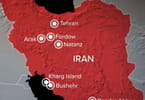A leading wildlife expert in Zimbabwe has warned that government’s push to implement the controversial wildlife based land reform will have “a huge” impact on tourism.
Johnny Rodrigues, chairman of the Zimbabwe Conservation Task Force, told SW Radio Africa on Wednesday that wildlife is the hallmark of tourism in Zimbabwe and any further disturbances to the industry will kill off the sector. “It’s a pity people are being used as political tools. Elections are coming and this is why you have people who support the regime going into these conservancies. Genuine conservationists had the welfare of animals at heart.
“But to suggest that bringing in new faces aligned to one political party and hope they will turn around wildlife conservancy as part of this new policy is just fantasy and pure greed,” Rodrigues said.
Authorities announced on Tuesday that they will now start forcing the predominantly white conservancy owners to join with black partners in a new round of so-called land reforms.
Parks and Wildlife Authority Director-General, Vitalis Chadenga, described the new policy as “one of the unfinished businesses of the land reform program.” It has mainly targeted ranches and conservancies situated in the southern half of Zimbabwe.
Chadenga told the state-controlled Herald the wildlife-based land reform policy will see at least 60 indigenous people getting leases from the government or “sharing” conservancies with white former owners. Sharing means the owners will be forced to give up 51% of their shares.
Most of those eyeing the conservancies are ZANU PF heavyweights and senior military personnel, who include cabinet Minister Stan Mudenge, Masvingo Governor Titus Maluleke, former deputy Minister Shuvai Mahofa, Major-General Engelbert Rugeje, and retired Brigadier-General Gibson Mashingaidze.
Rodrigues said wildlife management is a specialized field and people who were qualified to care for the wildlife have been driven off their properties to make way for people who, in most cases, have no experience in the field.
“A decade ago, we had 640 game ranches in Zimbabwe but it’s now gone down to 5. Of 14 conservancies before 2000, the last one was grabbed only recently, leaving none at all. Animals are being killed indiscriminately and there’s a lot of commercial poaching as well,” Rodrigues added.
Unscrupulous hunters and safari operators from South Africa and Botswana are targeting Zimbabwe and have reportedly been responsible for hunting the very few animals left. They are also reportedly buying hunts from the new settlers, who have no idea what hunts are really worth, so they are paid a very small sum, allowing huge profits to be made by the unscrupulous hunters.
“Tourism is being hugely affected by this. They are spending millions marketing tourism and telling the world they want the tourists to come back. The tourists aren’t going to come back because the basics and principals of the industry have been thrown out the window,” according to Rodrigues.
Two years ago, the head of the United Nations program to protect endangered species said that Zimbabwean security forces were spearheading the poaching of elephants and rhinos in the country.
WHAT TO TAKE AWAY FROM THIS ARTICLE:
- Rodrigues said wildlife management is a specialized field and people who were qualified to care for the wildlife have been driven off their properties to make way for people who, in most cases, have no experience in the field.
- Johnny Rodrigues, chairman of the Zimbabwe Conservation Task Force, told SW Radio Africa on Wednesday that wildlife is the hallmark of tourism in Zimbabwe and any further disturbances to the industry will kill off the sector.
- Two years ago, the head of the United Nations program to protect endangered species said that Zimbabwean security forces were spearheading the poaching of elephants and rhinos in the country.






















